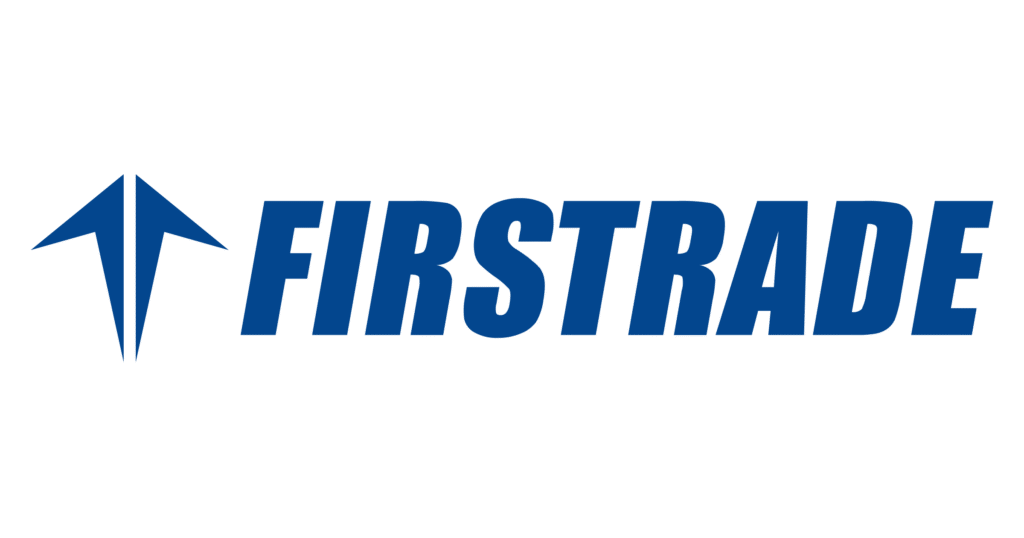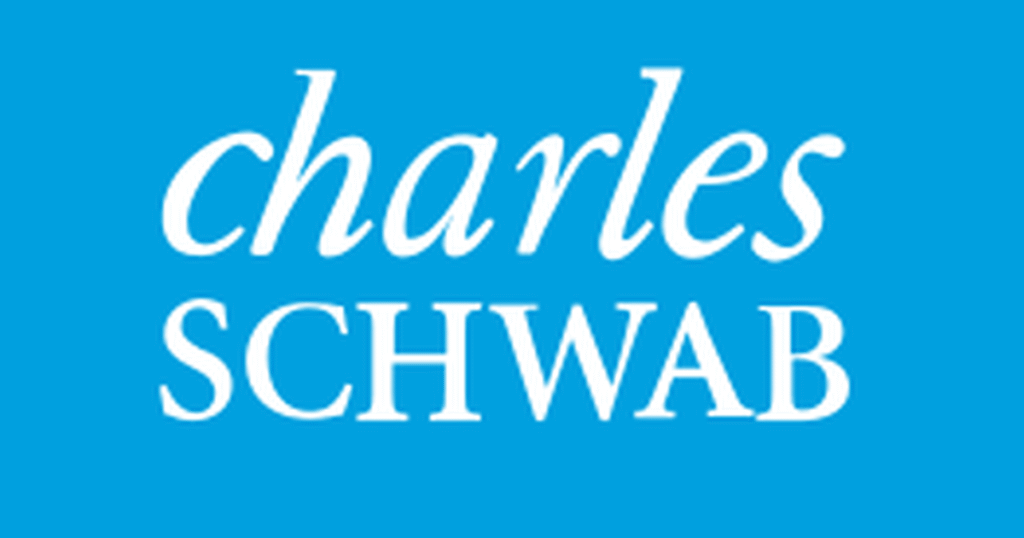
Penny stocks – typically very low-priced shares (often under $5) of small companies – are traded mostly over-the-counter (OTC), outside the major exchanges. These stocks carry a high degree of risk, may face liquidity issues, and can suffer from fraudulent manipulation. In other words, penny stocks are volatile and susceptible to pump-and-dump schemes, so any investor venturing here needs powerful tools and strict caution. Industry experts emphasize trading with “eyes wide open and the best tools at your disposal”. Choosing the right broker can make a real difference: factors like OTC access, commission fees, research tools, and mobile apps all matter. The following sections highlight the top five brokers for trading penny stocks, each excelling in different ways (e.g. zero commissions, advanced platforms, short-selling capabilities, or mobile ease). We also cover related topics such as short selling and how to get started safely.
Overview: Best Broker for Penny Stocks
| Broker | OTC/Penny Stock Fees | Key Strengths | Account Minimum |
|---|---|---|---|
|
Fidelity
Best Overall Broker
|
$0 Commission No hidden fees, no PFOF |
Zero commission OTC trades
Superior execution quality
Industry-leading research tools
No payment for order flow
Excellent customer service
Active Trader Pro software
Customizable charting & analytics
|
$0 |
|
Firstrade
Best Zero Commission
|
$0 Commission All trades including options |
Zero fees on all trades
No options contract fees
User-friendly mobile app
Chinese language support
AI analysis tool (FirstradeGPT)
Morningstar integration
|
$0 |
|
Charles Schwab
Best Advanced Platform
|
$6.95 per trade Standard OTC fee |
thinkorswim platform access
350+ technical indicators
Extensive educational resources
Professional-grade tools
Institutional research quality
Advanced order types
Live CNBC feeds
|
$0 |
|
Interactive Brokers
Best for Short Selling
|
$0 (IBKR Lite) $0.005/share (Pro) Capped at 1% trade value |
Excellent short-sale availability
Advanced risk management
Global market access
Professional TWS platform
Multiple pricing tiers
Risk Navigator tools
Deep customization options
|
$0 (Lite) $10K for Pro features |
|
E*TRADE
Best Mobile Trading
|
$6.95 per trade $4.95 (30+ trades/quarter) Volume discount available |
Award-winning mobile apps
Intuitive user interface
Morgan Stanley research
Extensive education library
Strong market commentary
Power E*TRADE app
Advanced screeners
|
$0 |
1. Fidelity: Best Broker for Penny Stocks
Fidelity stands out as an all-around top broker for penny stock traders. It charges $0 commission on OTC/penny stock trades (no hidden fees), prioritizes order execution quality, and provides industry-leading research tools. As noted by brokerage analysts, Fidelity offers penny stock trading commission-free and “consistently delivers better trade fills that can make a big difference” over time. This fee structure and execution edge mean every fraction of a penny in price improvement goes to the trader. Fidelity also does not accept payment for order flow (PFOF), which helps keep execution honest.

Fidelity’s platforms are feature-rich. The flagship Active Trader Pro software offers customizable charting and real-time analytics, and Fidelity’s mobile app is intuitive for quick monitoring. Traders benefit from powerful scanners, third-party analyst reports, and a robust economic calendar – all useful for screening potential penny stock plays and following market trends. In short, Fidelity combines zero fees and high-quality tools, making it ideal for those treating penny stocks like serious trades instead of gambles. In our view, Fidelity’s combination of low cost and top-tier execution makes it a top choice for penny stock trading (and perhaps the best overall broker in this niche).
- Key features: $0 OTC commissions; advanced research & charting; excellent execution quality (no PFOF).
- Strengths: No account minimum; industry-leading customer service; strong education center.
- Considerations: Platform is powerful but may have a learning curve for total beginners.
2. Firstrade: Best Online Broker for Penny Stocks (Zero Commissions)
Firstrade is a bargain hunter’s dream for penny stocks. This fully online broker charges $0 commissions on all trades – including OTC and penny stock transactions – and even $0 options fees. For example, investors have praised Firstrade as “hands-down the best broker for zero-commission penny stock trading”. Unlike some competitors that waive stock commissions but charge hidden contract fees, Firstrade has no contract, assignment, or exercise fees on options. This zero-fee policy yields serious cost savings for anyone doing high-volume or frequent trades.

Firstrade’s platform is straightforward and accessible. There is no minimum deposit, so new traders can start small. The mobile app is user-friendly for on-the-go trading: one can quickly search for penny stock symbols, pull up charts, and place trades. It even caters to Chinese-speaking investors with a fully translated interface – a rare plus among brokers. Firstrade also offers surprising research resources (integration with Morningstar and even an AI-based analysis tool, FirstradeGPT).
- Key features: $0 commission on stock, ETF, and penny stock trades; no options/contract fees; no account minimum.
- Strengths: Excellent for low-cost, high-volume trading; simple trading app; extra research tools despite being a discount broker.
- Considerations: Platform and tools are not as advanced as Schwab’s or IBKR’s; educational content is relatively thin.
3. Charles Schwab: Best Broker for Penny Stocks (Advanced Platform)
Charles Schwab is noted for its powerful trading suite and educational resources, making it a strong pick for penny stock traders seeking tools and learning materials. Schwab’s flagship thinkorswim platform offers over 350 technical indicators, customizable watchlists, advanced order types, and even ladder trading – everything needed for analyzing volatile, fast-moving penny stocks. In fact, analysts describe Schwab as “the best trading platform for penny stocks” due to access to thinkorswim’s professional-grade features. These tools are especially valuable for day traders running momentum or breakout strategies on microcaps. Schwab also provides institutional-quality research: analyst reports, sentiment overlays, and detailed metrics help investors assess highly speculative companies before trading.

On the downside, Schwab charges $6.95 per OTC trade, which is higher than some competitors. This cost can be a drawback for small trades, meaning larger positions may be needed to justify the fee. Still, many traders consider the cost worthwhile for thinkorswim’s capabilities. Schwab’s user interfaces (desktop and web) are robust, and its mobile app integrates live CNBC feeds and alerts. Novice traders in particular will appreciate Schwab’s abundant education (webinars, courses) to learn penny stock tactics.
- Key features: Access to thinkorswim platform; extensive charting/analytical tools; comprehensive research and education.
- Strengths: Extremely sophisticated trading interface; strong educational support; reliable customer service.
- Considerations: $6.95 OTC fee per trade; no crypto trading; relatively high margin rates.
4. Interactive Brokers: Best Broker for Short Selling Penny Stocks
Interactive Brokers (IBKR) is the go-to choice for advanced traders and anyone who needs to short penny stocks. It offers flexible pricing and global access. Traders using IBKR Lite pay $0 commissions on U.S. equity trades (including OTC penny stocks), while IBKR Pro charges $0.005 per share (capped at 1% of trade value). Notably, IBKR imposes no special penny stock surcharge, unlike many brokers. IBKR also provides exceptional short-sale availability: it has “good borrows for shorting penny stocks, even penny stocks that trade on OTCBB/Pink Sheets”. This means traders can place bearish bets on small-cap stocks more easily than at many other firms.

IBKR is renowned for its risk-management tools. As Investopedia notes, Interactive Brokers is considered “the best platform for active risk management” when trading high-risk instruments like penny stocks. Features like the Risk Navigator and vetted orders help keep portfolios in check. The Trader Workstation (TWS) platform is designed for professionals: it offers advanced order types, sophisticated charting, and deep customizability. IBKR caters to nearly every trading style with multiple apps – from the Lite mobile app to the pro-level TWS desktop. The tradeoff is complexity: there is a steep learning curve for beginners, and the fee structure (Pro vs. Lite) can be confusing at first.
- Key features: $0 stock commissions (IBKR Lite) or $0.005/share (Pro) for penny stocks; extensive global market access; powerful TWS platform.
- Strengths: Outstanding short-sale availability for OTC stocks; best-in-class risk tools; low minimum (no minimum for IBKR Lite).
- Considerations: Advanced interface not for novices; IBKR Pro fees get complicated; minimum $10K for margin and some features.
5. E*TRADE: Best Broker for Penny Stocks (Mobile Trading)
ETRADE (now part of Morgan Stanley) is known for its user-friendly platforms and strong mobile apps, making it ideal for traders who value convenience. ETRADE does charge $6.95 per OTC trade ($4.95 if you do 30+ trades per quarter), so it’s not fee-free. However, its offerings compensate many traders. It provides two branded mobile apps: the standard ETRADE app for casual investors, and the Power ETRADE app for more active traders. These apps earn praise; for instance, Investopedia describes E*TRADE as “the best mobile platform for trading penny stocks” due to its smooth, intuitive interface.

Across web and desktop, ETRADE delivers excellent usability. The platforms are visually pleasing, easy to navigate, and packed with research tools (screeners, charting, news feeds) that are helpful for penny stock analysis. ETRADE also offers a wide range of educational content and market commentary – a boon for beginners. In short, traders looking for a broker with robust mobile apps and a seamless user experience often choose E*TRADE.
- Key features: Robust, award-winning mobile apps (Power E*TRADE); strong research and screeners; $0 stock/ETF commissions (excluding OTC).
- Strengths: Highly intuitive platforms; wide educational library; Morgan Stanley’s research; no account minimum.
- Considerations: $6.95 OTC penny stock fee (reduced to $4.95 for active traders); no fractional shares on standard platform; high margin rates.
Choosing a Penny Stock Broker: Key Considerations
Picking “the best broker” depends on trading style and priorities. Key factors include commission structure (flat fees vs. per-share pricing), platform quality, research tools, and the ability to short. For example, a zero-fee broker like Firstrade or Fidelity can save costs, but the trader must also be comfortable with the platform’s capabilities. Conversely, a broker like Schwab or IBKR may charge per-trade fees but provide analytics that help manage the higher risk of penny stocks.
Also, leverage and short-selling can be critical. It is important to note that not all brokers allow shorting of OTC stocks – for short sellers, Interactive Brokers and other futures-facing firms are often the best choice. Similarly, if trading on the go is a priority, brokers with strong mobile apps (E*TRADE, Fidelity, Schwab’s Mobile, etc.) offer clear advantages. A summary table of typical OTC/penny stock fees is below:
| Broker | OTC/Penny Stock Fee |
|---|---|
| Fidelity | $0 (flat) |
| Firstrade | $0 (flat) |
| Charles Schwab | $6.95 per trade |
| Interactive Brokers | $0.005/share (min $1/order) |
| E*TRADE | $6.95 ($4.95 if active) |
Each of the above top 5 brokers offers penny stock trading, but with different strengths. Novice traders may gravitate to Schwab or ETRADE for ease of use and education, whereas advanced traders might prefer IBKR or Fidelity for execution and risk tools. Day traders in particular will want fast execution and analytics; for example, Schwab’s thinkorswim or ETRADE’s Power app provide robust charting and realtime data.
Concretely, to invest in penny stocks safely (another important intent): one should open a brokerage account with one of these reputable firms, thoroughly research any target penny stock (remembering that OTC companies have minimal disclosure), and start small. Diversify and set strict stop-loss orders. Many experts caution that penny stocks should be only a small portion of any portfolio. As Motley Fool co-founder Tom Gardner famously advised, “No one should make a purchase in the public markets of a stock priced below $10 a share as their first investment” (highlighting how speculative these stocks are).
Conclusion
In sum, picking the best broker for penny stocks boils down to balancing cost, tools, and strategy. Fidelity and Firstrade win on cost (both offer commission-free trades), Schwab leads in trading platform sophistication, IBKR excels in advanced features and shorting, and E*TRADE shines on user experience and mobile. Each broker above can handle penny stock trades, but traders should match a broker’s strengths to their own approach.
Concluding with expert insight, Will Baker of Investopedia reminds us that penny stock platforms “provide sophisticated research tools, position management tools, and abundant education, all while keeping costs low”. In other words, a strong broker not only gives access but also helps manage the high risk of penny stocks through information and technology. By combining low fees with robust trading platforms, the brokers profiled here represent the top picks for anyone determined to trade penny stocks responsibly.
FAQ
What are penny stocks?
Penny stocks are shares of very small companies trading at low prices, typically under $5 per share. They often trade over-the-counter (OTC) rather than on major exchanges. Penny stocks tend to be highly volatile, lack liquidity, and carry a high risk of fraud or manipulation. For these reasons, they require extra caution and thorough research by investors.
How do I invest in penny stocks?
Investing in penny stocks starts with choosing a reputable broker that offers OTC trading access. After opening an account (often with no minimum deposit, as with brokers like Fidelity or IBKR), fund the account and identify penny stock candidates through screening or research. It is crucial to review company filings (if available) and market data. Experts advise using limit orders to control entry and exit prices, and to place strict stop-loss orders given penny stocks’ volatility. Always start with a small position and diversify across several picks, recognizing the high risk. Using a trusted platform with strong analytics (e.g. Schwab’s thinkorswim or Fidelity’s tools) can help monitor trades.
Can I short sell penny stocks?
Yes, short selling penny stocks is possible but not at all brokers. For example, Interactive Brokers allows shorting many OTC penny stocks and even provides ample borrow availability for Pink Sheet issues. To short sell, you must have a margin account and borrow shares through the broker. Note that shorting penny stocks can be especially risky due to sharp price spikes (potential “short squeezes”). Brokers that prohibit shorting penny stocks (such as many retail brokers) will simply not allow these trades. Always confirm a broker’s short-selling policy before attempting to short any low-priced stock.
What is the best broker for penny stocks?
There is no one-size-fits-all answer; it depends on your needs. Many analysts agree Fidelity is the best overall for penny stocks due to its $0 commissions and quality execution. Others prefer Interactive Brokers for advanced traders and short selling. If zero fees are paramount, Firstrade is top-notch. In our top-5 list, we highlight each broker’s strengths. Ultimately, the best broker is one that lets you trade OTC stocks with low costs and gives you tools to handle high risk.
What are some day trading strategies for penny stocks?
Day trading penny stocks often relies on momentum and short-term setups. Popular strategies include breakout trades (buying when a penny stock breaks a resistance level on high volume) and news plays (trading stocks on sudden announcements). Because penny stocks move quickly, day traders need fast execution and real-time data. Platforms like Schwab’s thinkorswim and E*TRADE’s Power app support these strategies with custom alerts and advanced charting. However, keep in mind penny stocks have wide spreads, so even day traders must use strict entry/exit limits and never invest more than they can afford to lose.











